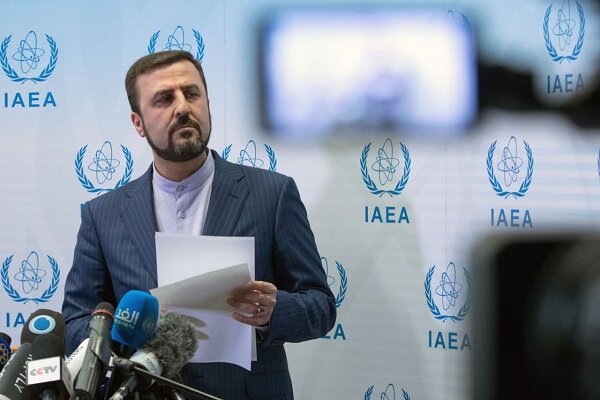AhlulBayt News Agency: Iran's Permanent Representative to International Organizations says the United States’ unilateral sanctions against other nations are clear violation of human rights and the UN charter.
The 48th Session of the UNIDO Industrial Development Board was held on Monday via videoconference with the aim of promoting and accelerating inclusive and sustainable industrial development (ISID) in developing countries and economies in transition.
Addressing the session, Iran’s Permanent Representative to International Organizations Kazem Gharibabadi criticized the illegal unilateral sanctions and their consequences on the actions of developing countries in the face of the coronavirus epidemic.
Emphasizing the fundamental role of UNIDO in the activities and development programs of developing countries, he underlined the importance of multilateralism and inclusive cooperation between countries to achieve the development of the industrial community and creating a capable environment for the benefit and welfare of the all.
He stressed, "We must protect multilateralism as a value for industrialization and believe that there is a long way to go to achieve sustainable development and create a world with more prosperity and health for the people."
Elsewhere in his speech, Gharibabadi pointed to the coronavirus and said that the fight against this epidemic requires a comprehensive, coordinated, and comprehensive multilateral response to support countries in need in order to enable them to take better compensatory measures.
While expressing deep concern about the serious consequences of the new disease for many developing countries, the Iranian diplomat said "We continue to see the use of unilateral sanctions against other countries; such sanctions are in clear violation of the goals and principles of the UN Charter, international law, and human rights as well as the principles of multilateralism and the norms of diplomacy and international relations.”
He called on the UNIDO members to cooperate to ensure the capacities and opportunities, as well as continued access of all developing countries to the equipment needed for the battle against the pandemic.

